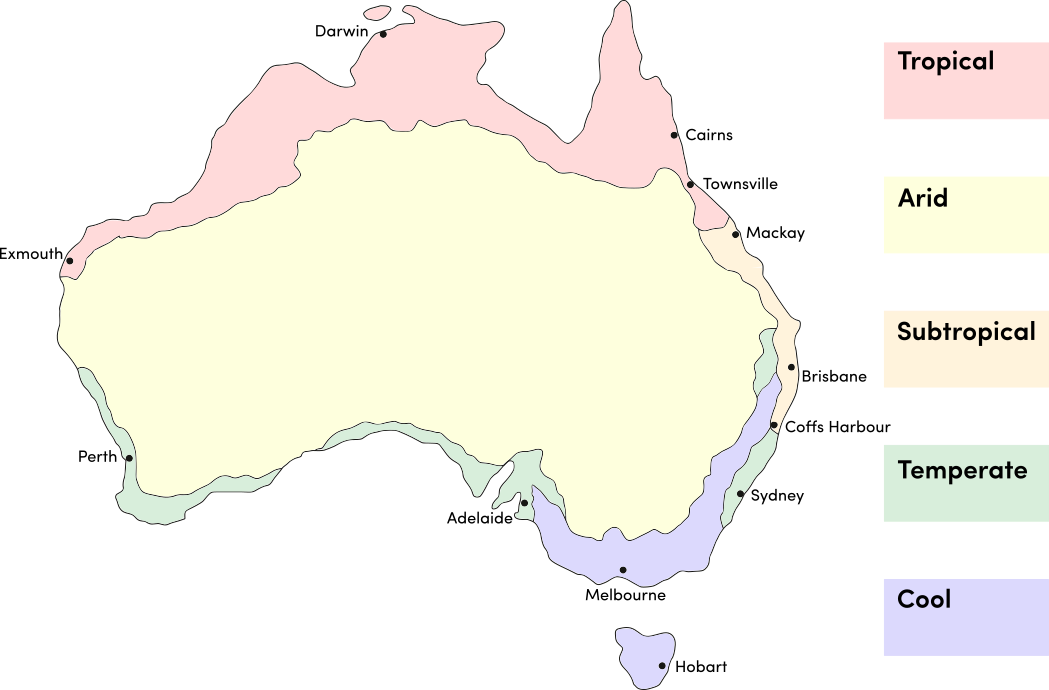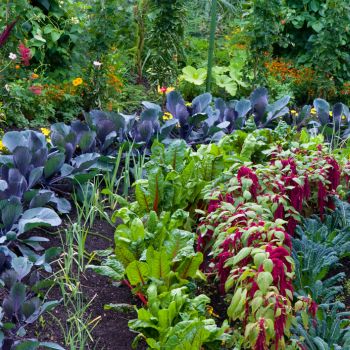With lots of people isolated at home, it is a great time to get outside into the garden and start growing. Gardening has both physical and mental health benefits and is a great way to relax and reduce stress throughout the uncertain times ahead. Late autumn is still a fantastic time to sow many of the easy-to-grow and quick-to-harvest seasonal vegetables. There is still plenty of time this season to plant vegetable varieties such as lettuce, radish, kale, silverbeet, spinach, peas, mustard greens, pak choi, rocket and carrots.
Whether you are an experienced gardener or just beginning your gardening journey, we have plenty of helpful tips and articles on our website to assist you in producing a successful and abundant harvest from your own backyard. Read on below for our monthly tips and articles.
Seeds to Sow in May: The links below list more seeds that can be sown now in each climate. Click to browse:
▩ Cold Climate: Tasmania, Melbourne, Mt Gambier, Canberra, etc.
▩ Moderate Climate: Sydney, Perth, Adelaide, etc.
▩ Warm Climate: Brisbane, Bundaberg, Carnarvon, etc.
▩ Tropical Climate: Broome, Darwin, Cairns, Townsville, etc.
▩ Not sure which climate? Click here.
Seaweed solution- Diluted seaweed concentrate is great for all-round plant health. Seaweed solution helps stimulate germination and promotes root growth in young seedlings and cuttings. It is also effective at reducing transplant stress in seedlings. Healthy happy seedlings are less vulnerable to damage from pests and frost, so an application of seaweed solution to your vegetable garden this month will help your plants in the months ahead.
Weeds- Keep on top of weeds. At this time of year, as the weather turns colder and rain is more constant, opportunistic weeds can grow rampant and cause competition for young seedlings and plants. If hand weeding is not an option, consider using an organic weed killer that is safe to use near food crops.
Support- Provide supporting frames for climbing peas and sweetpeas. Stake tall plants which may be knocked over in strong winds.
Mulch- Start preparing plants for the colder winter months, layers of mulch will help keep soil temperatures warmer. Consider erecting a cold frame over vulnerable crops if you are in a climate prone to frost.
Flowers & Herbs- May is a great time to plant herb seeds and scatter flower seeds. Perennial flowers and herbs do well if sown now, soil temperatures are still warm enough for good germination and the increased rainfall creates great soil moisture retention required for germination to take place.
Planting Flanders poppies now will give you flowers in time for Remembrance Day.
Leaves- Collect fallen leaves to add to your compost piles and worm farms. These leaves are nutrient rich and help improve soil structure.
Cuttings- Consider propagating some herbs from hardwood cuttings; rosemary, bay leaf, lavender and sage can all be successfully propagated from cuttings. Rooting powder or rooting gel is a great way to encourage cuttings to quickly and effectively produce roots.
Slugs & Snails- Keep an eye out for slugs and snails around new seedlings. Placing snail traps filled with beer or vegemite water is an easy and effective method of controlling these unwanted pests in your garden beds. For pots and containers consider using copper tape as a deterrent.
Cabbage Moths- Cabbage moths are at their most destructive now while the weather is still mild. They are busy laying eggs on young brassicas and the freshly hatched caterpillars can cause a huge amount of devastating damage within just a few days. Exclusion netting, organic caterpillar spray or derris dust are great eco-friendly control methods for these destructive critters.





